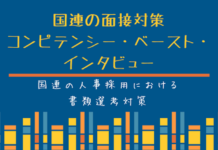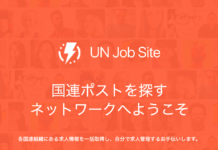Managerial Competencies – Vision
Positive Indicators
- Identifies strategic issues, opportunities and risks.
- Clearly communicates links between the Organization’s strategy and the work unit’s goals.
- Generates and communicates broad and compelling organizational direction, inspiring others to pursue that same direction.
- Conveys enthusiasm about future possibilities.
Negative Indicators
- Focuses on detail at the expense of the broader picture.
- Gets bogged down in detail; can’t see the forest for the trees.
- Fails to anticipate future needs.
- Takes a short-term view.
- Does not think strategically.
- Views the future in a simplistic way.
- Focuses on short-term goals.
- Thinks in a narrow way.
- Struggles to inspire others about strategic direction.
Sample Questions
- Tell me about a recent time when you needed to take a broad view of your own work.
- Why was this necessary?
- How useful was this approach?
- What would you do differently next time?
- Describe an occasion when you considered a range of possible future scenarios when planning.
- How did you take account of possible risks?
- What contingencies did you make?
- When are you least likely to consider future possibilities when planning?
- How effective were you at conveying enthusiasm about the possibilities?
- What was difficult about conveying this enthusiasm?
- Give me an example of a time when you could have taken a more long-term view.
- Why was this important?
- What was the outcome?
- What did you learn?
- Tell me about a time when you have had to translate a strategy into actions and plans.
- What did you specifically do that was effective?
- How did you know that your plans were clear enough to be implemented?
- What would you do differently in hindsight?
- Tell me about a time when you have found it difficult to compel others to follow a strategic direction.
- How did you try and get others on board?
- Why was this difficult?
- What did you specifically do?
- What would you do differently next time?
- Describe an example of when you have taken strategic implications into consideration as part of your decision-making.
- What did you do specifically that was effective?
- How accurate was your view of the big picture?
- What risks did you identify?
- How could you have taken a more strategic perspective?
- In what situations do you take a less strategic perspective to your work?
- Tell me about a time when you have taken into account the wider implications of an issue in your decision-making.
- Was there anything that you did not anticipate that would have been useful in hindsight?
- When are you least likely to take into account the wider implications of issues?
- How does your big picture perspective differ from that of your peers?
- What do you see as being the key to ensuring that the wider implications of issues are taken into account when decisions are made?
- It is not always easy to step back from day-to-day operations to consider the bigger picture when making decisions. Give me an example of when you have found it difficult to consider the bigger picture when making a decision.
- Why was this?
- What did you do?
- What would you do differently in a similar situation?
- What was the outcome?
- Tell me about a situation when you took global trends into account in a strategy or plan.
- How successfully did you integrate these global trends with the work of your organization?
- How could you have been more effective at taking account of global trends?
- What advice would you give to someone who had difficulty taking a global perspective at work?
他の面接質問集
他の面接質問集は「国連採用試験:面接質問集」をご覧ください。
関連リンク >> 「国連採用試験:面接質問集」






